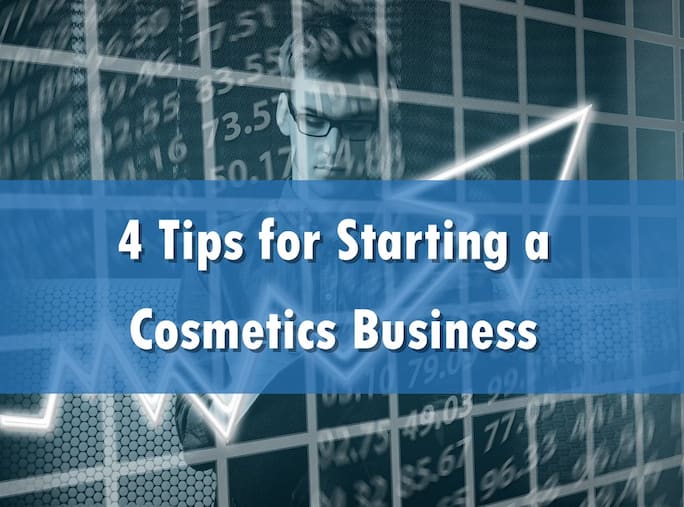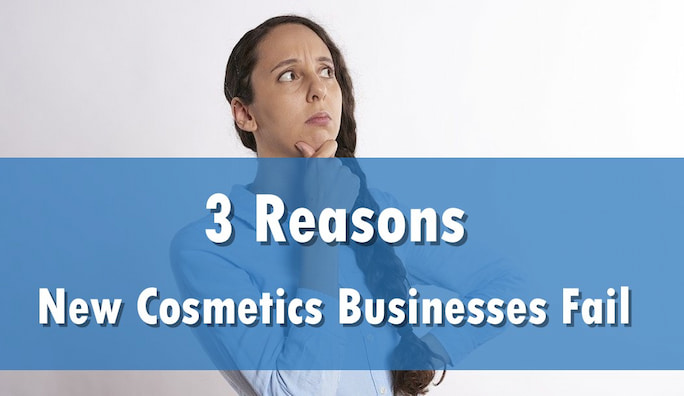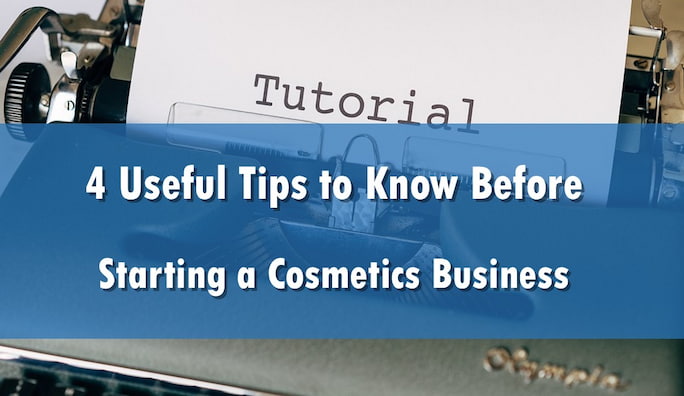
- HOME
- Cosmetic OEM Lab

From professional makeup artists to beauty vloggers on YouTube, we can see that makeup is an essential part of everyone’s lives. Particularly women use makeup to enhance their facial features, cover unwanted blemishes, and boost their self-esteem. In fact, makeup is a staple in a person’s routine that many businesses are starting their own cosmetics business.
Based on Statista, the market size for makeup products is rapidly growing as it accounts for 16 percent of the cosmetics industry in the global market. With the rise of the cosmetics industry, entrepreneurs worldwide are rushing to create new products to cater to the new wave of consumers who are looking for fresh and new makeup. One way to enter the competitive market is to source high-quality products.
Japanese products are becoming in-demand in the international market due to their rich, natural, and timeless ingredients. Consumers aren’t only buying the products but also the timeless rituals and stories that transform a person’s skin. If you’re one of the budding entrepreneurs who want to start their own Japanese cosmetics business, read our article below to get tips on how to start a cosmetics business.
But before we dive into the details of starting a cosmetics business, we need to answer one of the most important questions entrepreneurs ask.
Contents

The cosmetics industry is a strong and highly competitive industry that is expected to continue to grow in the years ahead. In fact, its market size is projected to grow by $463.5B in 2027 from USD 6760 Million in 2020. Asia-Pacific is the largest market for the cosmetics industry accounting for 60% of the global market.
One of the main reasons for the industry’s growth is the emerging countries that are becoming globalized. Thanks to a growing nation, this makes it easier for international companies to enter the market. Furthermore, consumers turn towards e-commerce to purchase their skincare and cosmetic needs.
Add onto it are the social media platforms that promote these types of products, thereby influencing the buying decision of the consumers. Shipping from one country to another has also become easier and faster. Instead of waiting for months to receive a product, many businesses partner with shipping couriers to ease the shipment of goods.
Aside from these, many consumers tend to consider ingredients and effectiveness over price. Hence, consumers are investing more in products that have proven results over those that do not have. Some of the primary products they purchase are organic, clean, and cruelty-free. There has been a growing movement towards clean and organic products that brands are changing their testing practices to certify products as cruelty-free and paraben-free.
We recommend our clients offer unique products while catching up with the latest trends in the market. For example, highlighting sustainability through product ingredients is one way of achieving this while also keeping an eye on the market’s needs.

There are several risks and mistakes when starting a cosmetics business. Knowing each one of them allows you to avoid them. Here are three of the common reasons why cosmetics businesses fail.
Introducing a new product is important. Every brand understands that launching the next big thing can increase brand awareness and sales. However, most businesses fail to see the needs of the market. They focus on producing products without thinking about the needs and benefits for the consumers.
Before you create a new product, you need to conduct market research. Research is key in understanding your market. The goal of every business is to fulfill the gap in the market, and you can’t achieve it without gathering data from your consumers.
Through market research, you can check how your customers perceive your company compared to your competitors. It can reveal how satisfied your customers are with your product and what areas you need to improve. Most importantly, market research can help you decide whether a new product will be appealing to consumers or not.
Many businesses fail to see the importance of research. Hence, they spend so much money on manufacturing and marketing the product without gaining any profit. To avoid this marketing mistake, you need to conduct market research and create a good marketing strategy. Always remember that research can make or break your cosmetics business.
If you plan on getting a private label manufacturer, one of the challenges you may face is high minimum order quantity or MOQ. Many cosmetics businesses purchase high quantities of certain items even though the demand is low. This results in major losses for the business.
To avoid this common mistake, you need to talk to the private label manufacturer and ask for their MOQ. Their MOQ must match your current demand. If it does not, then try to negotiate. Part of doing business with manufacturers is negotiating your supply with their current requirements.
One of the ways to get them to say yes is to show them that you are a respectable company. Show them that you are a long-term customer and convince them your business has the potential to grow in time. Build a good relationship with your manufacturer to get the best deals and prices.
Starting a cosmetic business requires careful planning, marketing, development, and experience. Every entrepreneur must be equipped to handle a growing cosmetics business and resolve unexpected challenges in operations. However, not all entrepreneurs have experience in handling a cosmetics business.
Start-up businesses fail in growing their shop due to their lack of experience. They fail to understand the manufacturing and distribution process, while others fail to resolve problems in the shipment and marketing of their products. Hence, the lack of experience of key decision-makers can affect the outcome of the business.

Once you are able to understand the common mistakes start-up businesses make, it’s time for you to learn how you can start your own cosmetics business. Launching your own cosmetic brand may be a daunting yet exciting experience. To help you out, here are four tips you can apply when starting a cosmetics business.
Private label manufacturers allow brands to sell products in their own label and packaging. Instead of creating your own product from scratch, which requires a lot of time under research and development, private label manufacturers allow you to sell high-quality products without the burden of research. Private label manufacturers do the research for you.
All you need to do is to sell the product under your label and packaging. Furthermore, private label manufacturers have a range of products you can choose and customize based on market needs. To find a private label manufacturer, you can start browsing on the Internet, online directories, and Alibaba.
Create a list of these private label manufacturers and get to know them by checking if their niche matches yours. Once you are able to identify the manufacturers you can worth with, contact them in order to set up a meeting. Discuss your current demand and align it with their MOQ. Be courteous and humble when talking to them, but also do your best to negotiate your supplies. Set expectations and keep a good working relationship since your success is also dependent on them.
The beauty industry is a huge market wherein it is categorized in smaller niches such as skincare, cosmetics, haircare, and fragrances. Understanding each one will help you get a better look at its similarities and differences. Since you are starting a cosmetics business, it’s best to study the market size, share, competition, and legalities of this industry.
One way to do it is to analyze data conducted by researchers. Based on the research done by Allied Market, skin and sun care products constituted a major cosmetic market share in 2019. Women also dominated the market share in terms of market size, while key players in the cosmetics industry are Avon Products Inc., Kao Corporation, and L’Oreal.
Thanks to the rise in beauty-conscious women, it is projected that the cosmetics industry will continue to rise over the years. Studying competitor brands also helps you understand their strategies and target market. Researching your competitors doesn’t mean copying their style and message but using it as an inspiration for your branding. Don’t forget to check the legalities in starting a cosmetic business to ensure that you conduct business the right way.
This is one of the exciting parts of starting a cosmetic business – planning and developing your products. Armed with your information about your market and competitors, start differentiating your products with them. Check if the products you will be offering are in line with the needs and wants of your consumers.
A rising number of consumers are looking for cruelty-free and clean products with good and eco-friendly packaging. Although other consumers prefer any type of product, your brand must live to the claims you presented on your website. Consumers are not shy to purchase expensive products as long as they enjoy the product’s benefits.
To achieve a high-quality and unique product, start by checking the ingredients. It must be carefully formulated to ensure the success of the product. Then tackle your brand story and concept.
You need to have a distinct branding that will identify you from other competitors. You can show your branding through your packaging, website, social media accounts, and company culture. Market your products by investing in paid ads, influencer marketing, and many more. Create a good marketing strategy to ensure a good launch of your products.
Some start-up businesses think that they need to start big to create better sales. However, starting big can have a lot of challenges. One of them is holding too much inventory in the warehouse since it’s not selling well. It is recommended to produce in low quantities and test the market in the beginning, in order to minimize the risk.

If you are looking for a private label partner, trust that OEM Co., Ltd. can help you out. We offer high-quality Japan-made products for your brand. Our dedicated and experienced staff can help you with your needs, and we always ensure that we ship the best Japanese products.
As we understand the risks to start a new business and create a new brand, we do our best to offer our help to those who want to start with small quantities. Since we have been a company that has always had clients who start and continue with small quantities, we have the flexibility and means to offer a wide range of products at reasonable costs.

Starting a cosmetics business requires time, effort, determination, and expertise. Hopefully, these tips can guide you on what you need to check before starting your business and what you need to avoid. Having a dedicated private label partner will also contribute to the success of your business, so if you need a trustworthy partner that has a proven track record, you can contact us today.
For further information, please contact us.